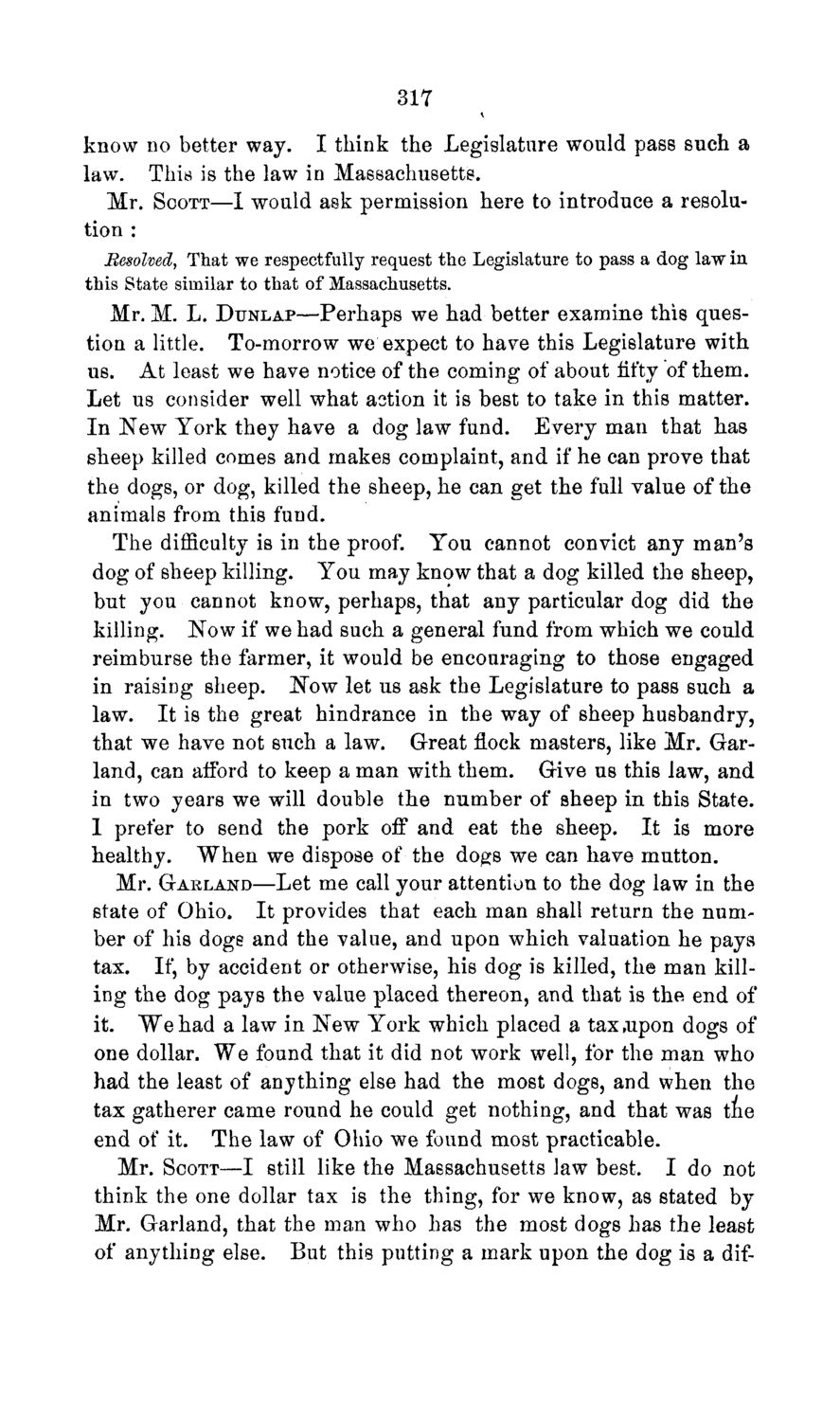| |
| |
Caption: Board of Trustees Minutes - 1869
This is a reduced-resolution page image for fast online browsing.

EXTRACTED TEXT FROM PAGE:
317 know no better way. I think the Legislature would pass such a law. This is the law in Massachusetts. Mr. SCOTT—I would ask permission here to introduce a resolution : Besolved, That we respectfully request the Legislature to pass a dog law in this State similar to that of Massachusetts. Mr. M. L. DUNLAP—Perhaps we had better examine this question a little. To-morrow we expect to have this Legislature with us. At least we have notice of the coming of about fifty "of them. Let us consider well what action it is best to take in this matter. In New York they have a dog law fund. Every man that has sheep killed comes and makes complaint, and if he can prove that the dogs, or dog, killed the sheep, he can get the full value of the animals from this fund. The difficulty is in the proof. You cannot convict any man's dog of sheep killing. You may know that a dog killed the sheep, but you cannot know, perhaps, that any particular dog did the killing. Now if we had such a general fund from which we could reimburse the farmer, it would be encouraging to those engaged in raising sheep. Now let us ask the Legislature to pass such a law. It is the great hindrance in the way of sheep husbandry, that we have not such a law. Great flock masters, like Mr. Garland, can afford to keep a man with them. Give us this law, and in two years we will double the number of sheep in this State. 1 prefer to send the pork off and eat the sheep. It is more healthy. When we dispose of the do^s we can have mutton. Mr. GARLAND—Let me call your attention to the dog law in the state of Ohio, It provides that each man shall return the number of his doge and the value, and upon which valuation he pays tax. If, by accident or otherwise, his dog is killed, the man killing the dog pays the value placed thereon, and that is the end of it. "Wehad a law in New York which placed a tax,upon dogs of one dollar. We found that it did not work well, for the man who had the least of anything else had the most dogs, and when the tax gatherer came round he could get nothing, and that was the end of it. The law of Ohio we found most practicable. Mr. SCOTT—I still like the Massachusetts law best. I do not think the one dollar tax is the thing, for we know, as stated by Mr. Garland, that the man who has the most dogs has the least of anything else. But this putting a mark upon the dog is a dif-
| |